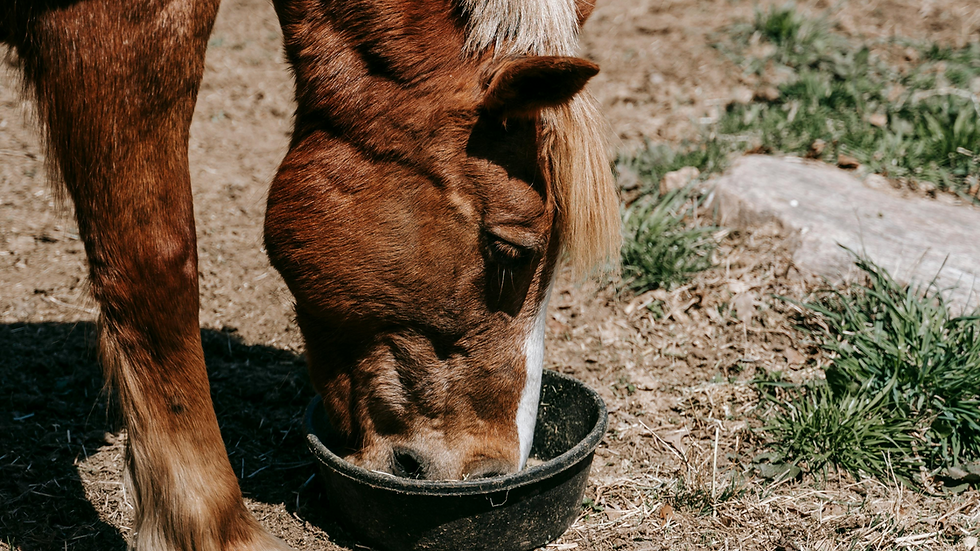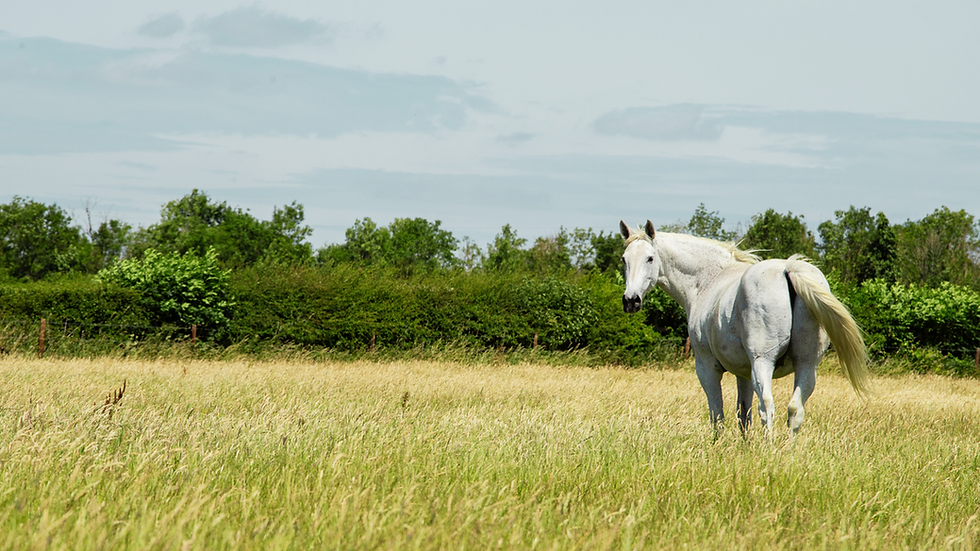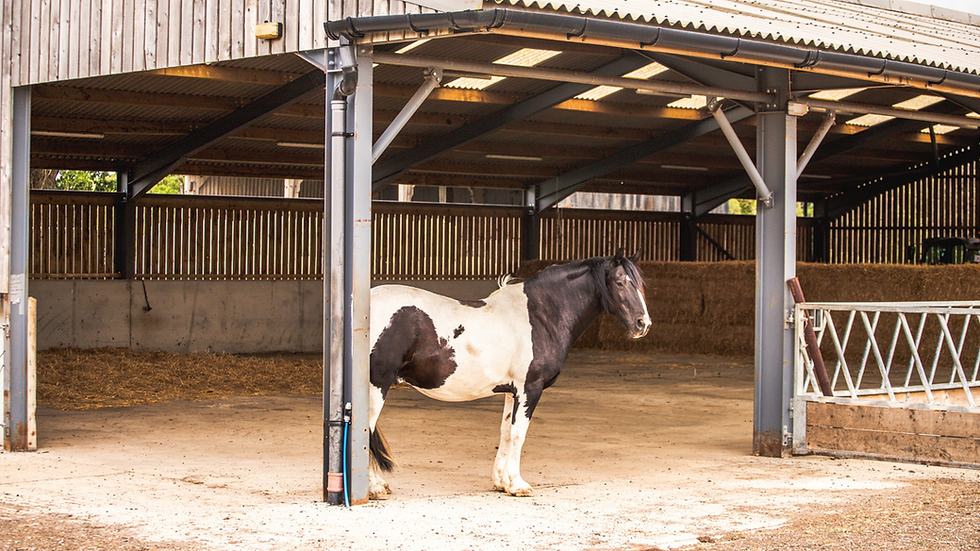Nutrition for Senior Horses – Supporting Health in Later Life
- hello212862
- Sep 12, 2025
- 3 min read
The number of horses staying fit and active well into their senior years has grown significantly in recent decades. One of the biggest reasons for this is good horse nutrition – the right diet can make all the difference to an older horse’s comfort, health, and quality of life.
As horses age, they may face challenges such as weight loss, reduced joint mobility, dental issues, and sometimes neurological changes. When these signs appear, it’s vital to reassess their management and adapt their diet to meet their changing needs.
Maintaining Condition with the Right Diet
Older horses often need a diet higher in calories and quality protein to maintain muscle tone and overall condition. Specialist senior feeds are now widely available, designed to support joint health (with ingredients like glucosamine and MSM), digestion (with probiotics and prebiotics), and immune function (with added antioxidants).
These feeds are typically very palatable and can be soaked into a soft mash, making them ideal for horses with dental problems who struggle to chew harder feeds. This ensures they can still get the nutrition they need without discomfort.
Fibre and Forage – The Cornerstone of Horse Nutrition
Forage is always the foundation of good horse nutrition, but older horses with worn or missing teeth may struggle with long hay or haylage. In these cases, alternative fibre sources can help. Options such as soaked fibre cubes, beet pulp, and chopped alfalfa are highly digestible “super fibres” that provide slow-release energy. When soaked, they’re soft, safe, and easy for veteran horses to eat.
A balanced forage replacer often includes soaked beet pulp, fibre cubes, and chopped alfalfa, fed in proportions that match the horse’s body weight. This ensures they still receive the fibre essential for healthy digestion, even if they can’t manage long-stem forage.
At Moor and Glebe Farm Retirement Livery, we prioritise high-quality hay, haylage, and grass to support our residents’ health. For horses needing more controlled grazing, we also have fields with lower-quality grass, allowing us to tailor turnout and forage to each horse’s unique requirements, whether they need extra calories to maintain condition or careful management to prevent weight gain.
Vitamins, Minerals, and the Role of Balancers
No matter the age of the horse, vitamins, minerals, and protein remain essential to long-term health. In the UK, it’s widely recommended that all horses receive a daily balancer to ensure their diet is complete. Balancers support immunity, muscle strength, hoof quality, and overall wellbeing.
At Moor and Glebe Farm Retirement Livery, we ask owners to supply their horse with a balancer as part of their diet. This not only ensures the horse gets everything they need nutritionally, but also gives us the opportunity to observe them closely while eating – an ideal time to monitor dental health.

Horse Nutrition for Good Doers
Not all older horses lose weight easily – some keep their condition with very little effort. For these horses, extra calories aren’t needed, but a balancer is particularly valuable. It provides all the necessary nutrients without the risk of weight gain.
We also work with owners who want to closely track their horse’s condition. Over the years, we’ve partnered with feed companies such as Spillers to carry out weighbridge visits and body condition scoring – services we are always happy to arrange for owners who want detailed insights into their horse’s nutrition and management.
✅ Key Takeaway
Every older horse is unique, and careful attention to horse nutrition makes a huge difference in how comfortably they age. At Moor and Glebe Farm Retirement Livery, we provide tailored nutrition, high-quality forage, flexible grazing, daily balancers, and attentive care – ensuring every horse enjoys a happy, healthy retirement in their golden years.
Explore our retirement liveries here: https://www.equineretirementlivery.co.uk/get-in-touch




Comments